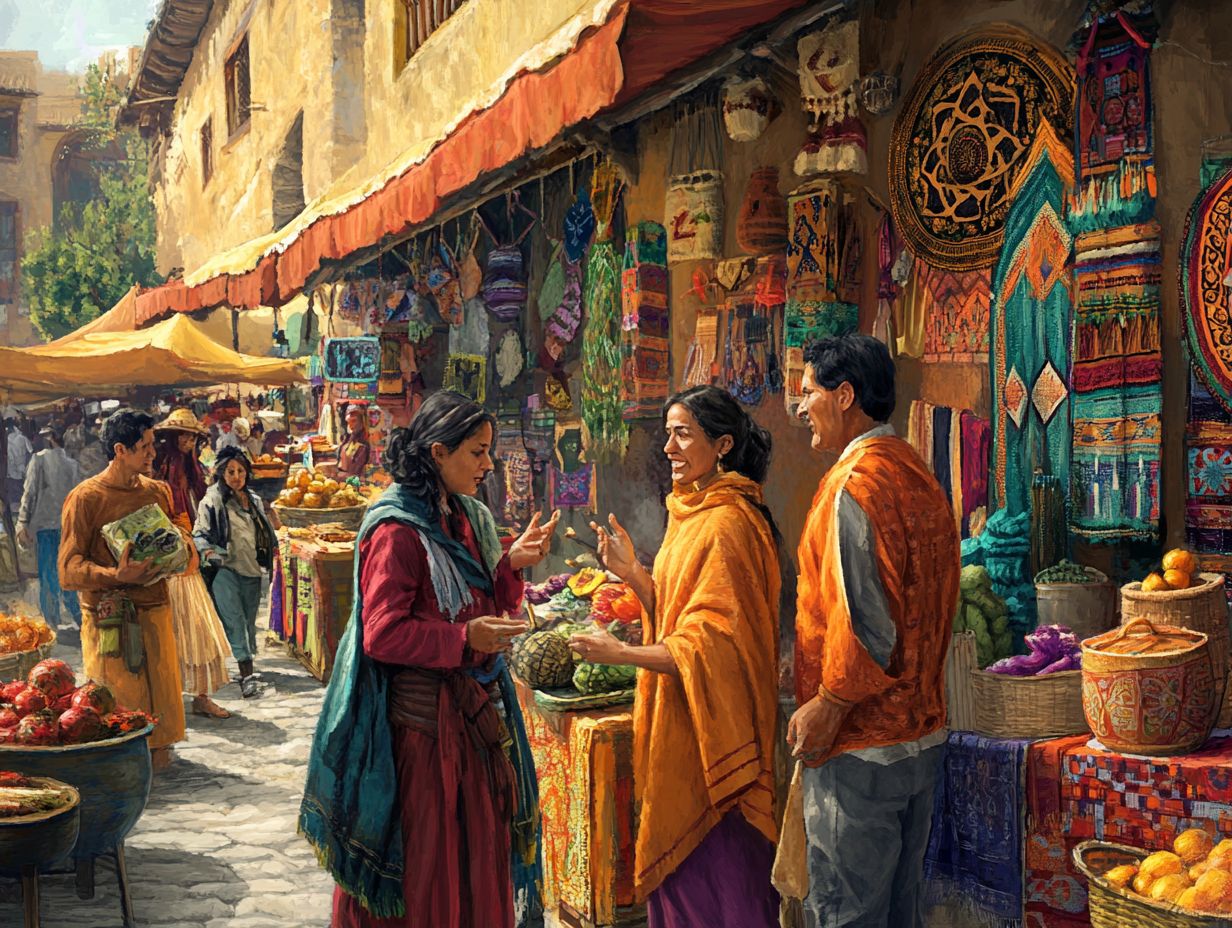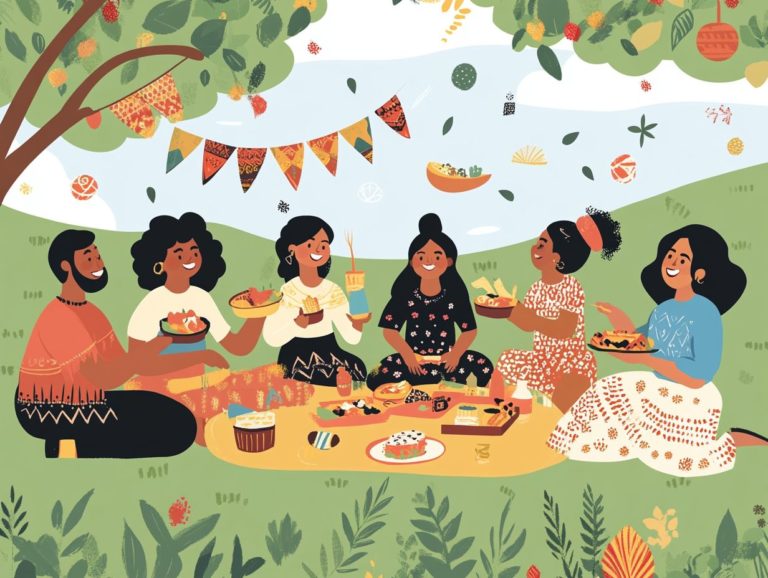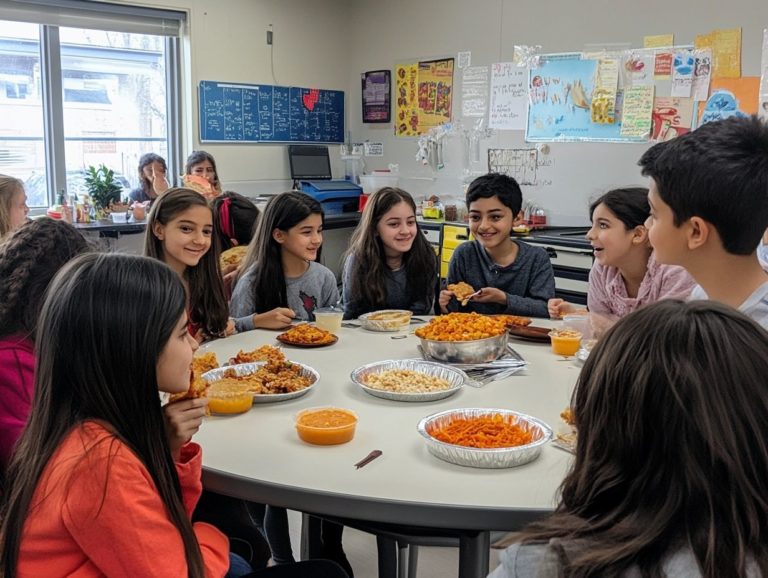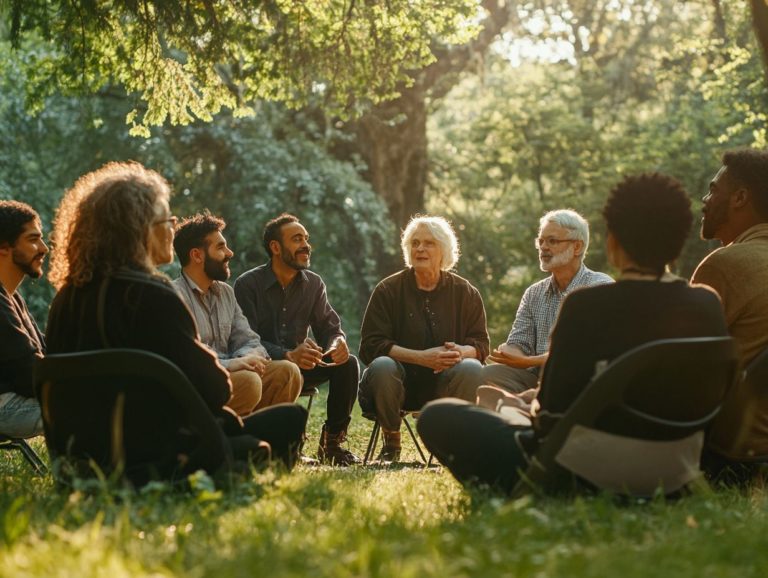Understanding Local Taboos: What to Avoid
Every culture possesses its own distinct set of rules and subtle guidelines that define acceptable behavior, commonly referred to as taboos. These social norms can differ dramatically, often deeply embedded in historical and cultural contexts.
Dive into this fascinating exploration of how local taboos develop, evolve, and manifest in diverse ways across the globe. For travelers and inquisitive minds alike, grasping these taboos is essential for engaging respectfully and steering clear of unintentional offense.
Join us in navigating this captivating topic as we highlight examples and discuss the implications of crossing these cultural boundaries.
Contents
- Key Takeaways:
- Defining Local Taboos
- Cultural and Historical Context
- Common Taboos in Different Cultures
- Navigating Taboos as a Visitor
- Breaking Taboos: Consequences and Impact
- Frequently Asked Questions
- What are local taboos and why should I be aware of them?
- What are some common examples of local taboos?
- How can I research and learn about local taboos before traveling?
- What should I do if I accidentally break a local taboo?
- Why is it important to respect local taboos even if I don’t understand them?
- What are some potential consequences of not respecting local taboos?
Key Takeaways:

- Understanding local taboos is essential for respectful behavior and avoiding offense while visiting different cultures.
- Taboos develop and change over time, influenced by cultural and historical context.
- Breaking taboos can have significant consequences, such as social backlash or misunderstandings, so it’s important to understand their significance in different cultures.
Defining Local Taboos
In rural Tajikistan, especially within the Khatlon province, local food taboos are intricately linked to health beliefs and gender roles. These factors significantly shape dietary practices and the overall health of the community.
These taboos reflect cultural identity and are molded by historical, social, and political contexts. These influences shape food distribution and nutritional choices among people who are at risk.
Grasping the nuances of these taboos is crucial for developing effective health-focused programs that respect the complexities of social systems and health outcomes in the region.
What are Local Taboos?
Local taboos encompass culturally specific restrictions on certain foods, often rooted in health beliefs and dietary practices that vary from one community to another.
These restrictions play a significant role in shaping how you perceive nutrition and health. They influence everything from your daily diet to the availability of particular ingredients. For example, in Tajikistan, some groups might avoid pork due to Islamic beliefs, while others could steer clear of specific fish species they consider unclean or unhealthy.
Such food taboos can profoundly impact community health, potentially leading to nutritional deficiencies or encouraging the consumption of alternatives that may not provide a balanced diet. To engage with local populations, it’s essential to understand these practices. By respecting these beliefs, you pave the way for better communication and improved health outcomes.
Cultural and Historical Context
Understanding the cultural and historical context of food taboos in rural Tajikistan is crucial for grasping how these practices have evolved over time. They are intricately shaped by social norms, gender roles, and cultural identity.
In the Khatlon province, these taboos reveal not just personal health beliefs but also the broader societal values that impact food security and nutrition-sensitive interventions. Recognizing this rich interplay of culture and history is vital for effectively addressing malnutrition among vulnerable groups.
How Taboos Develop and Change

Food taboos evolve and transform due to various factors, including cultural identity and health beliefs. These changes reflect the dynamic nature of community practices.
In rural Tajikistan, these taboos are often closely linked to local customs and the community’s understanding of health. Qualitative research shows that as external influences such as globalization and migration begin to permeate these tightly-knit communities, traditional food practices can undergo significant changes.
For instance, the introduction of modern agricultural techniques may alter perceptions around certain crops, directly impacting dietary choices. This evolution not only reshapes individual health beliefs but also transforms collective understandings of nutrition, ultimately influencing community health outcomes.
Increased awareness of dietary diversity could lead to improved well-being, whereas clinging to outdated taboos might introduce risks. This highlights the critical need to adapt cultural beliefs to meet contemporary health needs.
Common Taboos in Different Cultures
Across diverse cultures, food taboos reveal unique dietary practices influenced by cultural identity and health beliefs. These taboos often dictate what is deemed acceptable or forbidden at the dining table.
Take rural Tajikistan and Khatlon province, for example. Certain foods may be avoided due to local customs and gender roles, significantly affecting the community’s health results.
Recognizing these taboos is essential for addressing malnutrition and developing effective interventions that resonate with local people.
Examples of Taboos in Various Regions
Food taboos create a fascinating tapestry of cultural practices that shape dietary choices across different regions.
In some cultures, specific foods are avoided due to religious convictions. For example, in Hinduism, beef is considered sacred, leading many to abstain from it entirely. In Tajikistan, horse meat is notably taboo, steeped in historical significance and cultural identity.
These dietary restrictions can also affect gender roles, where women may face social stigma for deviating from traditional norms. Vulnerable groups like children and the elderly may experience the most significant effects, highlighting how these taboos impact both individual health and the well-being of the entire community.
As a visitor, being aware of food taboos is essential for a rewarding experience. This awareness is especially crucial in areas like rural Tajikistan, where these customs are intricately woven into health beliefs and social structures.
Understanding these nuances helps you cultivate respectful interactions and avoid unintentional offenses that could disrupt community health dynamics.
Respectful Behavior and Avoiding Offense

Demonstrating respectful behavior towards food taboos is vital for avoiding offense to the local community and preserving cultural identity.
When traveling in Tajikistan, it’s crucial to understand that many locals view certain foods as sacred or restricted. For example, pork is often avoided by Muslim communities, so it’s best to refrain from bringing or consuming it in public spaces.
Participating in practices like sharing traditional dishes during communal meals fosters goodwill and enriches intercultural relationships. By respecting dietary restrictions, you can positively influence health outcomes, as local cuisine, rich in grains and vegetables, promotes better well-being.
Being mindful of these food customs lays the groundwork for mutual respect, ensuring that you and the locals can enjoy shared experiences without any cultural missteps.
Breaking Taboos: Consequences and Impact
Breaking food taboos can have serious repercussions for individuals and communities, influencing cultural identity, health beliefs, and food security, especially in rural Tajikistan.
The consequences can manifest in various ways, including social ostracism, health complications, and disruptions to community nutrition systems. This underscores the importance of understanding the stakes involved in such actions.
Understanding the Significance of Taboos
Food taboos shape cultural identity and health beliefs in communities. In rural Tajikistan, these dietary restrictions influence what people eat and the social dynamics within the community.
Some foods are avoided during certain seasons or events. This reinforces social bonds and cultural narratives that create a stronger collective identity.
These taboos also affect health. Adhering to them can promote a balanced diet and protect against illnesses from consuming forbidden foods.
Food taboos enhance food security. They guide what is grown and eaten, ensuring community health remains a priority in challenging yet traditional landscapes.
Frequently Asked Questions
What are local taboos and why should I be aware of them?

Local taboos are customs that can offend in specific communities. Understanding them helps you avoid causing discomfort.
What are some common examples of local taboos?
Examples of local taboos vary between cultures. Common ones include avoiding certain hand gestures, clothing choices, or topics of conversation. For instance, in many Asian countries, it is considered rude to point with your index finger, while in Middle Eastern countries, it’s important to dress modestly.
How can I research and learn about local taboos before traveling?
You can read travel guides, talk to locals or expats, or do some online research. Consulting with a travel agency or tour company that specializes in your destination is also a good idea.
What should I do if I accidentally break a local taboo?
If you unintentionally break a local taboo, apologize sincerely and try to make amends. Showing respect and acknowledging your mistake can diffuse uncomfortable situations. Educating yourself further on local customs can help prevent future mistakes.
Why is it important to respect local taboos even if I don’t understand them?
Local taboos may not always make sense to outsiders, but they are rooted in deeply held cultural beliefs. By respecting them, you show appreciation for the culture and people of the community you’re visiting.
What are some potential consequences of not respecting local taboos?
Not respecting local taboos can lead to uncomfortable or hostile interactions. It may result in being asked to leave certain places or events and, in extreme cases, could lead to legal issues. It s always best to err on the side of caution and respect local customs.






